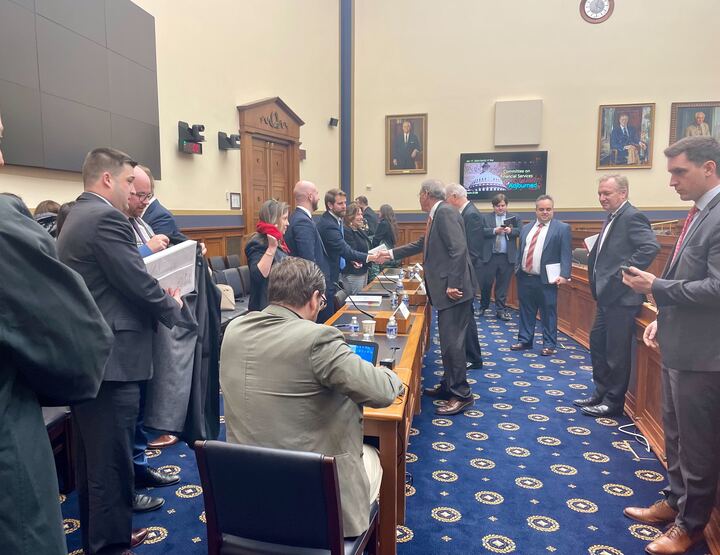WASHINGTON – Members of Congress discussed the need for new legislation and additional financing and support for nuclear energy abroad on Wednesday in response to China and Russia’s exportation of nuclear reactors to foreign countries.
According to a memorandum submitted by the House Financial Services Committee majority staff, China and Russia have been constructing nuclear reactors in Europe, South Asia, Africa, Latin America and Eurasia. This practice has allowed the two countries to establish footholds in developing economies around the world, raising concerns among national security experts in the U.S.
As the global demand for nuclear energy increases, especially in developing countries, Russia and China have increased nuclear exports while U.S. exports have remained stagnant.
“The challenges to nuclear are largely economic,” Rep. Bill Foster (D-Ill.) said.
Maria Korsnick, President and Chief Executive Officer at the Nuclear Energy Institute, said on Wednesday that Russia and China’s global nuclear energy presence would give them national security advantages and primary access to the nuclear energy market.
“We operate the largest and highest performing fleet of reactors in the world. However, we are behind Russia and China when it comes to [nuclear] exports,” Korsnick said. “Therefore, it is Russia and China that are building strategic, 100-year partnerships and setting the standards for global nuclear safety.”
According to expert witnesses and the FSC’s memorandum, American nuclear technology is much safer than Chinese and Russian technology, meaning countries receiving Chinese and Russian reactors are at higher risk for unsafe conditions.
“It’s not whether or not nuclear plants are going to be built, it’s whether or not the United States is going to build them,” Korsnick said, urging lawmakers to push for greater exports of American nuclear technology to ensure safe nuclear activity.
Nuclear energy is a clean energy source that offers a more efficient alternative to solar and wind power. Nuclear power produces around 30% of the world’s low-carbon electricity, making it a critical source of energy, especially for developing economies.
China is currently responsible for over a third of nuclear reactors under construction globally, and Russia is constructing over 21 reactors beyond its borders.
“It is past due for the United States to get back in the game and compete,” said Rep. Blaine Luetkemeyer (R-Mo.), Chairman of the Subcommittee on National Security, Illicit Finance, and International Financial Institutions. “Nuclear power provides us with a unique opportunity to push for a positive national security agenda.”
Lawmakers at Wednesday’s hearing expressed bipartisan support for legislation to commit to nuclear energy development, including the International Nuclear Energy Financing Act of 2023, which was introduced in the House of Representatives last year. The bill calls for the government to use its “voice, vote, and influence” to support financing nuclear energy.
“The export of U.S. nuclear energy technology is important for our national security, our economic security, and for our climate,” Rep. Wiley Nickel (D-N.C.). “The U.S. just can’t fall behind.”
Nickel said he is drafting legislation to “jumpstart nuclear financing” at the Export-Import Bank of the United States.
Beyond improving energy exports and production capacity, lawmakers and expert witnesses argued that Russia and China are building their global influence through nuclear reactors.
Rep. Monica De La Cruz (R-Texas) said that China and Russia are seeking “world energy dominance” to force developing countries into dependent relationships.
“For the last 30 years, we’ve mostly abdicated our position in global exports of nuclear technology,” said Dr. Ben Reinke, Vice President of Global Business Development at X-energy. “Today, that means that they have relationships that exist between developing nations often, but also others that have been developed already, that exist now, they have for 20 years, with Russia or China. That puts us at a geopolitical and geostrategic disadvantage.”


